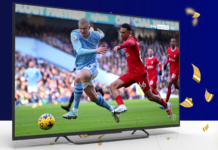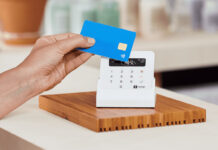Small steps can make a big difference to bills, say energy-saving consultants


FOR busy licensees, finding the time to organise utility bills and look for ways to cut costs is not always easy.
But there are simple steps that bar, restaurant and hotel owners can take to trim costs without dedicating every waking hour to the task.
The Carbon Trust, which advises businesses and organisations on energy saving, said there are a number of “simple housekeeping” measures that can help operators save money.
These include regular checking of a building’s heating and air conditioning panels and ensuring that time clocks are installed and set correctly.
Replacing halogen lightbulbs with LED lights is another good way to cut electricity costs in the long term, according to Carbon Trust general manager Paul Wedgwood.
“Replacing halogen lights with LED lights will initially cost more as LED lights tend to be more expensive than other lighting options,” said Wedgwood.
“A typical cost might be around £10 per bulb, with prices coming down as the technology becomes more widely available. However, these lights can provide savings of up to £20 in electricity costs per year per light if the lights are on 12 hours a day.”
Costs can be further mitigated with the introduction of Passive Infrared (PIR) sensors, which will switch the lights off when a room is unoccupied. According to Wedgwood, these sensors will typically pay for themselves within a year through energy saved.
And introducing these kind of energy-efficiency measures is not just kinder to the environment.
Wedgwood said they can also make a very real difference to a company’s financial bottom line.
“Within the hospitality sector, while energy costs may only be a small percentage of turnover, reducing them can directly increase profits without the need to increase sales,” said Wedgwood.
“Money saved on energy goes straight to the bottom line, which makes businesses more competitive – and with rising energy prices, this is more important than ever.”
Saving money on utilities is about more than just cutting bills though.
One option for dealing with rising overheads will always be to pass the expense on to the consumer.
Norman Skaggs, chief executive of specialist consultancy Superpower Corporation, argued that cutting these costs can actually help operators attract business.
Rather than passing the expense onto your customers, said Skaggs, pass savings onto them instead.
“Dishing out heating to accommodate guests at your establishment, large screen televisions, sound systems and lighting all mount up in electricity costs,” he said.
“It’s just another factor that’s driving the cost of running your business through the roof.
“So what’s a couple of pence added to the price of a pint to support the increase in energy costs?
“It gets passed onto your customers who are increasingly in favour of staying at home and saving the pennies instead of heading out to socialise at the local, because the price of their favourite tipple costs more than sitting in front of their TV with a few tinnies on the weekend.
“Pass the savings onto your customers and keep your bar full simply by saving on your utility costs.”
Reviewing utility costs isn’t something that operators need to face alone, with organisations such as the Carbon Trust and consultancies like Superpower Corporation on hand to provide advice.
“Publicans have enough on their plate when it comes to running a pub,” said Skaggs.
“No need for you to organise anything to do with your utilities anymore, leaving you to do what’s most important with your business.
“Utility consultancies know the market, and can make you massive savings in both time and costs without you lifting a finger.
“Having your utilities managed effectively is definitely something that all publicans should consider.”
Image – Heating and lighting are two areas in which hotel operators can look to cut utility bills, according to the Carbon Trust.
Some top tips for cutting energy bills:
• Install a seven-day time clock on electric heaters and vending machines
• Replace halogen bulbs with LEDs
• Ensure the beer cellar temperature is not set too cold
• Switch on kitchen extractor fans only when needed
• Do not overheat guest bedrooms
• Install a Passive Infrared (PIR) sensor to control lights in areas that are used occasionally (eg. toilets)
* Supplied by the Carbon Trust























